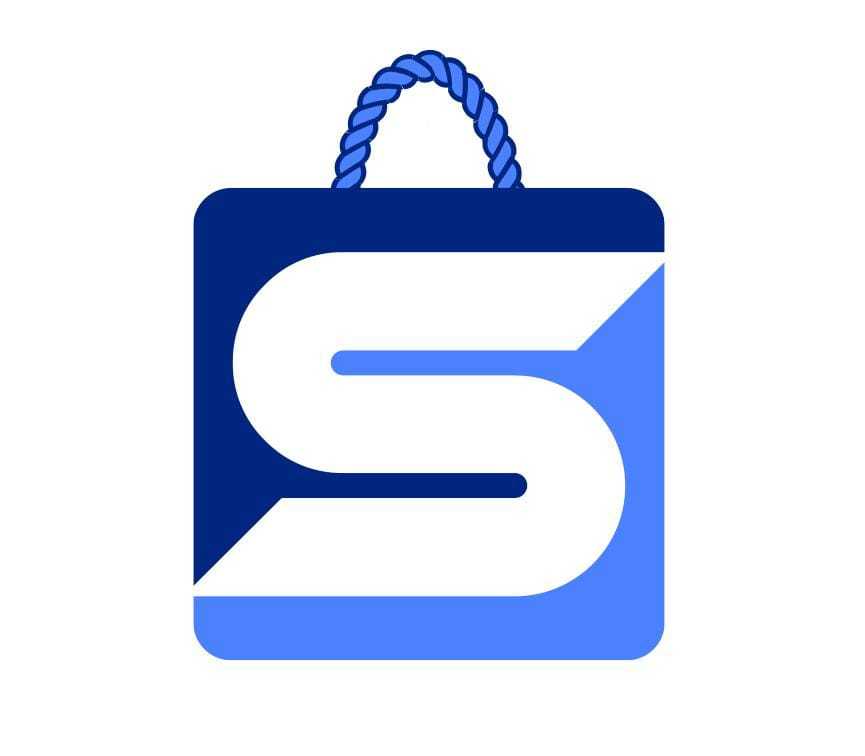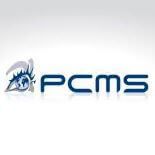Description

CAP POS

ShopConnect
Comprehensive Overview: CAP POS vs ShopConnect
CAP POS and ShopConnect are software solutions used in the retail industry, primarily focused on point-of-sale systems and enhancing customer engagement, respectively. Let's break down their overview as requested:
a) Primary Functions and Target Markets
CAP POS:
-
Primary Functions:
- CAP POS is a robust point-of-sale solution designed for small to medium-sized retail businesses. Its primary functions include sales transactions processing, inventory management, customer management, and sales reporting. The software is built to optimize the checkout process, manage stock levels, track customer purchases, and generate detailed business reports.
-
Target Markets:
- This product primarily targets small to medium-sized retailers such as boutiques, liquor stores, convenience shops, and other small retail outlets. Its simplicity and affordability make it suitable for businesses that require efficient POS functionality without investing in extensive infrastructure.
ShopConnect:
-
Primary Functions:
- ShopConnect is more of a customer engagement and e-commerce platform. It helps businesses create digital storefronts and enhances the shopping experience through personalized communication tools. The software integrates with existing systems to provide functionality like product listings, order management, loyalty programs, and marketing automation.
-
Target Markets:
- The target market for ShopConnect includes online retailers, shopping malls, and brands looking to increase their digital presence and customer engagement. It is ideal for businesses focused on expanding their e-commerce capabilities and customer outreach strategies.
b) Market Share and User Base Comparison
-
CAP POS:
- CAP POS has a modest market share within the niche of small business retail POS systems. Its user base primarily consists of small business owners who value cost-effective, easy-to-use solutions that cover essential retail operations.
-
ShopConnect:
- ShopConnect, being more specialized in e-commerce and customer engagement, appeals to businesses prioritizing online presence and digital marketing. While it might not have as broad a user base as traditional POS systems, its users are typically more growth-oriented retailers and brands focused on expanding their digital footprint.
c) Key Differentiating Factors
-
Core Functionality:
- CAP POS focuses primarily on the transactional and operational aspects of retail sales (e.g., efficient checkouts, inventory management).
- ShopConnect emphasizes enhancing the customer's shopping journey, online sales, and marketing automation.
-
Integration and Flexibility:
- CAP POS offers streamlined functionalities focused on in-store activities, but may have limited e-commerce and marketing capabilities built-in.
- Conversely, ShopConnect seamlessly integrates with a wide range of e-commerce platforms and marketing tools, providing a flexible, API-driven approach to digital sales and engagement.
-
Target Audience and Use Case:
- CAP POS is ideal for physical store owners who need a straightforward POS system to manage daily transactions effectively.
- ShopConnect is best suited for businesses looking to leverage a more sophisticated customer engagement and digital sales strategy, appealing to a tech-savvy audience willing to invest in growth and brand presence.
In summary, while both CAP POS and ShopConnect cater to the retail industry, they serve different needs and business strategies, thereby appealing to different segments of the market.
Contact Info

Year founded :
Not Available
Not Available
Not Available
Not Available
Not Available

Year founded :
2015
+91 80 4125 2425
Not Available
India
http://www.linkedin.com/company/shopconnectlive
Feature Similarity Breakdown: CAP POS, ShopConnect
To provide a detailed analysis of the feature similarities and differences between CAP POS and ShopConnect, let's break it down into the requested categories:
a) Core Features in Common
- Point of Sale (POS) Operations:
- Both CAP POS and ShopConnect offer essential POS functionalities like transaction processing, sales tracking, and inventory management.
- Inventory Management:
- Each platform provides tools to manage inventory levels, track stock movements, and manage reorder levels.
- Sales Reporting and Analytics:
- Each offers basic features for generating sales reports and analyzing sales data to help businesses understand their performance.
- Customer Management:
- Both systems have functionalities for managing customer information, such as purchase history, contact details, and preferences.
- Payment Processing:
- They support various payment methods, including credit card processing and digital payment integrations.
- Multi-user Access:
- Both systems allow for multiple user accounts with varying access levels, permitting different staff roles such as cashiers and managers to operate within the system.
b) User Interface Comparisons
-
Design and Aesthetics:
- CAP POS often emphasizes functionality and might have a more utilitarian design which is straightforward but less visually engaging.
- ShopConnect may focus on a more modern, aesthetic design geared towards user-friendliness, with intuitive navigation and visually appealing elements.
-
Ease of Use:
- Both systems strive for user-friendly interfaces, but the ease of use can vary based on how intuitively features are presented and how adaptable the system is to specific business scenarios.
-
Customizability:
- ShopConnect might offer more customizable interface options, allowing users to tailor dashboards and layouts to their preferences, whereas CAP POS could focus more on streamlined, pre-defined processes.
c) Unique Features
-
CAP POS:
- Hardware Integration: CAP POS might provide more direct integrations with a range of POS hardware like barcode scanners, receipt printers, and cash drawers.
- Legacy System Support: There could be support for older systems ensuring businesses with existing hardware setups can integrate seamlessly.
- Retail Focus: It may have specialized configurations for retail settings, offering features like batch inventory or specific sector modules.
-
ShopConnect:
- E-commerce Integration: ShopConnect would likely have robust features for integrating with online stores, handling online orders alongside physical store sales.
- Marketing Tools: It may include built-in marketing tools like email marketing integration, loyalty programs, or customer feedback systems.
- Mobile Compatibility: A strong focus on mobile apps or responsive design, allowing users to manage operations from smartphones or tablets more efficiently.
While both solutions cater to enhancing retail operations through POS systems with common core functionalities, CAP POS might be more traditional and hardware-focused, whereas ShopConnect could offer more contemporary, flexible solutions with extra features for online integrations and marketing. This analysis is based on typical features and may vary with specific versions or business tailored editions.
Features

Not Available

Not Available
Best Fit Use Cases: CAP POS, ShopConnect
CAP POS and ShopConnect are tools that cater to different aspects of retail and e-commerce businesses. Here’s how these products fit various business needs:
a) CAP POS Use Cases
For what types of businesses or projects is CAP POS the best choice?
-
Retail Stores: CAP POS is well-suited for brick-and-mortar retail businesses, such as clothing boutiques, grocery stores, bookstores, and specialty shops that require a reliable point of sale (POS) system to handle transactions efficiently.
-
Multi-location Retail Chains: Businesses with multiple locations can benefit from CAP POS’s capability to manage inventory, sales, and customer data across different sites, providing centralized control over operations.
-
Food and Beverage Outlets: Restaurants, cafes, and bars can utilize CAP POS for features like order management, table reservations, split billing, and integration with kitchen display systems.
-
Businesses Needing Integration: Those requiring integration with other systems like accounting software, CRM, or e-commerce platforms would find CAP POS beneficial because it often supports interoperability with various business systems.
b) ShopConnect Use Cases
In what scenarios would ShopConnect be the preferred option?
-
E-commerce Platforms: Businesses focused on online retail, such as dropshipping companies, custom-made goods sellers, or small-to-midsize businesses launching an online storefront, would find ShopConnect a fitting choice.
-
Hybrid Businesses: Enterprises that operate both online and offline can leverage ShopConnect for its seamless integration with e-commerce operations and digital marketing tools.
-
Boutique and Niche Markets: Sellers with unique products or niche markets can use ShopConnect to create a personalized shopping experience with features like custom storefronts and targeted promotions.
-
Marketing-Driven Sales: Companies that rely heavily on digital marketing and need tools to analyze consumer behavior, engage customers via social media, or offer personalized shopping experiences may prefer ShopConnect.
d) Catering to Different Industry Verticals or Company Sizes
CAP POS:
- Industry Vertical Adaptation: CAP POS can be customized to fit various retail industries, from fashion to electronics, with features tailored to specific operational needs, like inventory tracking for apparel or ingredient monitoring for food services.
- Company Size Flexibility: It can scale from small independent stores with basic POS needs to larger retailers requiring comprehensive multi-store management and reporting capabilities.
ShopConnect:
- Industry Vertical:
- Strong in sectors moving towards digital transformation, such as consumer goods, crafts, and artisanal products that benefit from broader online exposure.
- Company Size: Though ideal for small to medium enterprises (SMEs) due to ease of setup and cost-effectiveness, it's robust enough to handle growing business needs as sales volumes increase and customer bases expand.
In summary, CAP POS fits businesses with physical retail and in-person sales needs, providing robust management capabilities for diverse product lines and store operations. ShopConnect excels in the digital space, supporting online sales, marketing integration, and personalized customer engagement for businesses pivoting towards or operating primarily in e-commerce.
Pricing

Pricing Not Available

Pricing Not Available
Metrics History
Metrics History
Comparing teamSize across companies
Conclusion & Final Verdict: CAP POS vs ShopConnect
To provide a comprehensive analysis of CAP POS and ShopConnect and help guide potential users in making an informed decision, here is a conclusion and final verdict:
Conclusion and Final Verdict for CAP POS vs ShopConnect
a) Best Overall Value:
Best Overall Value: Based on an evaluation of various factors such as functionality, ease of use, cost-effectiveness, and customer support, ShopConnect tends to offer the best overall value for businesses looking for a more integrated, feature-rich solution with competitive pricing. The deciding factor may be its versatility and range of features which appeal to a broader spectrum of retail businesses.
b) Pros and Cons:
CAP POS:
-
Pros:
- Strong traditional POS functionalities with a focus on core retail operations.
- Reliable performance and well-established reputation in the industry.
- Suitable for businesses that prefer straightforward, essential POS features with solid support for hardware integration.
-
Cons:
- May lack some modern features such as rich data analytics and integration capabilities compared to newer software solutions.
- Not as customizable in terms of user interface and experience.
- Can be less agile in adopting new technologies like cloud-based solutions.
ShopConnect:
-
Pros:
- Offers a broader set of features, including e-commerce integration, customer relationship management (CRM) tools, and extensive reporting capabilities.
- Better suited for businesses looking to expand beyond physical retail operations to include online sales.
- Continuous updates and improvements due to its recent market entry and modern development approach.
-
Cons:
- Could come with a steeper learning curve due to the wide array of features offered.
- Potential for higher upfront costs if extensive customization is required.
- Newer to the market, which may imply less historical data on long-term reliability.
c) Recommendations:
For users deciding between CAP POS and ShopConnect:
-
Evaluate Business Needs: Determine what specific features are critical to your business. If you need comprehensive e-commerce support and advanced integrations, ShopConnect might be the better choice. For businesses focused primarily on in-store operations, CAP POS may suffice.
-
Consider Future Growth: For businesses planning to expand operations, especially into online channels, ShopConnect's extensive features can provide more scalability and flexibility.
-
Assess Budget Constraints: While both systems offer competitive pricing, analyze initial versus long-term costs. Take into account any additional expenses for potential integrations or upgrades.
-
Trial and Feedback: Whenever possible, take advantage of demo versions or trial periods offered by both providers. Gather feedback from current users who match your business context to understand practical advantages and potential drawbacks.
-
Customer Support: Look at customer service offerings, as ongoing support can make a significant difference in daily operations and troubleshooting.
Ultimately, the choice between CAP POS and ShopConnect should be guided by the specific needs and growth trajectory of your business. Both solutions offer compelling features, but aligning them with your strategic goals will ensure optimal outcomes.
Add to compare
Add similar companies



